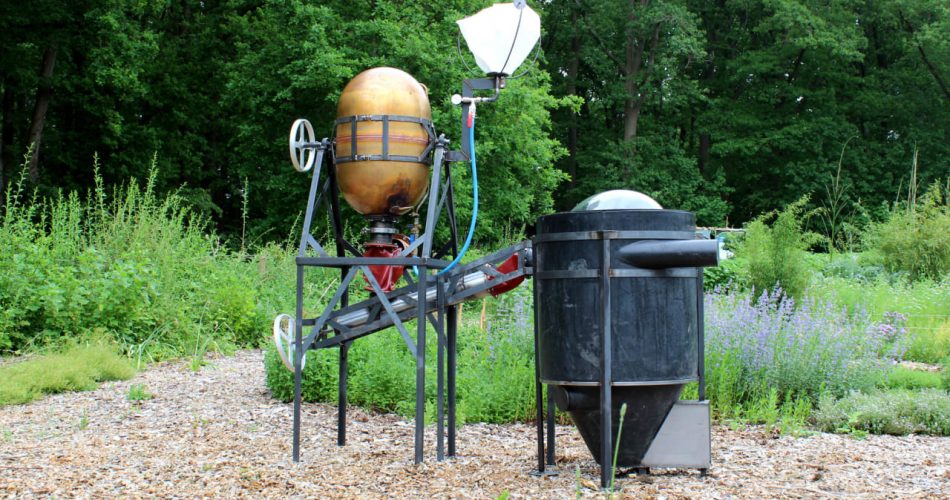It’s a bioreactor with a compost system
When you flush your toilet, wastewater needs to be treated and purified, a process that consumes energy (about 3% of U.S. energy), while 80% of wastewater comes back to the environment as a pollutant, and mixing stools with water increases the pollution. It’s causing serious harm to the environment.
To solve this problem, Rebecca Schedler, a graduate student at Design Academy Eindhoven in the Netherlands, built the Symbiopunk, a bioreactor, and compost system that converts human feces into fertile hummus by introducing fungi cultures to perform digestion. The project invites us to reconsider the taboo around the natural process of defecation by showing how human waste becomes valuable first as an essential food for the mushroom, which in turn produces a fertilizer that can be used for cultivation purposes. The project was carried out with Kildwick, a composting toilet company.
The Symbiopunk is entirely mechanical and operates without the use of electricity. To use it, simply place solid waste in the Symbiopunk’s big copper drum, which spins left to right and turns upside down to make the task easier. The excrement will stay in this copper for two to three days, during which time the temperature of the stools will rise because of the active microorganisms. Copper provides a literal cooling-off period, and copper’s antibacterial properties contribute to the sterilization of the waste.
After a few days, the waste passes through the black tube at the bottom of the contraption. By twisting the white handle, the feeder lifts the waste into the big black tank while also incorporating mycelium (the base organism of a mushroom) into the mix.
After a few weeks, mushrooms sprout, purifying and decomposing the waste into humus, which may then be employed as organic fertilizer in a garden or farm.
For those who wonder if the process stinks, Schedler replies that it stinks less than you would expect because it doesn’t use water, which is largely responsible for stench due to pathogens. So, another positive aspect is that there’s no need to dispose of dirty water. In addition, mushrooms help mitigate odors. Although it can’t be completely odorless, there’s less stench than the stools themselves.
Schedler hasn’t been the first person to propose using mycelium to treat waste. In 2018, a student project called the MYCOmmunity Toilet proposed a mycelium-filled toilet to be buried when full. Over a month, mycelium would digest the waste, working it back into the earth as fertilizer.
Schedler aims to question the advancements of our industrial civilization with Symbiopunk, a low-fi, metal network of tubes and hoppers that run without the use of electricity or fossil fuels. Only your feces and muscle power are required by Symbiopunk. You invest in the process of cleaning up after yourself while also strengthening our environment.
“You really need to deal with your own shit”, Schedler says. “It’s not disappearing, you need to take care of it, what comes out of you. You need to take care of a different living organism, and by doing that, you also take care of yourself. It’s a loop… It’s not as easy as pushing a button and then it disappears”.
Source fastcompany.com
